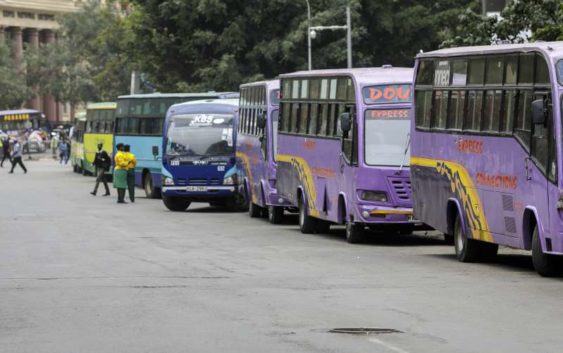- Governor Sanwo-Olu flags off Ojota-Opebi Link Bridge, to be completed in 20 months
- Allow Nigeria go to 2022 World Cup, don’t play qualifiers – Ghana Parliament member tells Black Stars
- There was no second sex tape, Kim Kardashian refutes Kanye West’s claims
- Jaruma Remanded In Prison Over Post On Regina Daniels And Ned Nwoko
- Lanre Gentry confirms paternity of last son with Mercy Aigbe, says ‘He’s my son’ (Photo)
EU gives Sh5bn for Nairobi bus transport

The Sh9.6 billion Nairobi Bus Rapid Transit (BRT) project got a major boost on Wednesday after the European Union (EU) committed a Sh5 billion grant towards its implementation.
The project, which was launched in 2015 by President Uhuru Kenyatta, has been on hold for lack of funds to buy high-capacity buses and support infrastructure.
EU Ambassador to Kenya Stefano Dejak said the money will be used to develop and install BRT supporting infrastructure in three years.
50 BUSES
“The one thing that Nairobi needs is to have an effective BRT system. That is why EU has invested a Sh5 billion grant to make sure you the people of Nairobi will have an effective, safe, not polluting, not jamming, bus transport system,” said Mr Dejak during the occasion to mark the World Cities Day in Eastleigh Wednesday.
About Sh7 billion of the amount will be used to develop five BRT lines and installing the necessary infrastructure while Sh2.6 billion will be used to procure 50 high-capacity buses.
REMAINING BILL
The national and county governments will foot the remaining Sh4.6 billion — for the full implementation of the project which will see installation of other link roads such as Likoni, Enterprise, Lusaka and Parklands Ring roads as well as a walkway on Rabai Road.
Speaking at the same event, Nairobi Governor Mike Sonko said his administration will ensure that the initiative is fast-tracked to meet the laid-down deadlines.
TRANSPORT POLICY
He said that after the completion of the BRT system and introduction of commuter rail services, passengers and commuters should be able to access bus and railway stations safely by foot or by cycling, adding that the Nairobi non-motorised transport policy states that all new projects must include provision of safe walkways and cycle lanes.
“As the co-chair of Nairobi Regeneration Committee, of which President Kenyatta is the chair, I will not tolerate any laziness in implementation of projects funded by the EU,” said Governor Sonko. The event also marked the launch of the 2.2 kilometre General Waruinge-Juja Road-Thika Superhighway link road which is among the 16km link roads in the city that the EU is funding to ease traffic flow in Nairobi